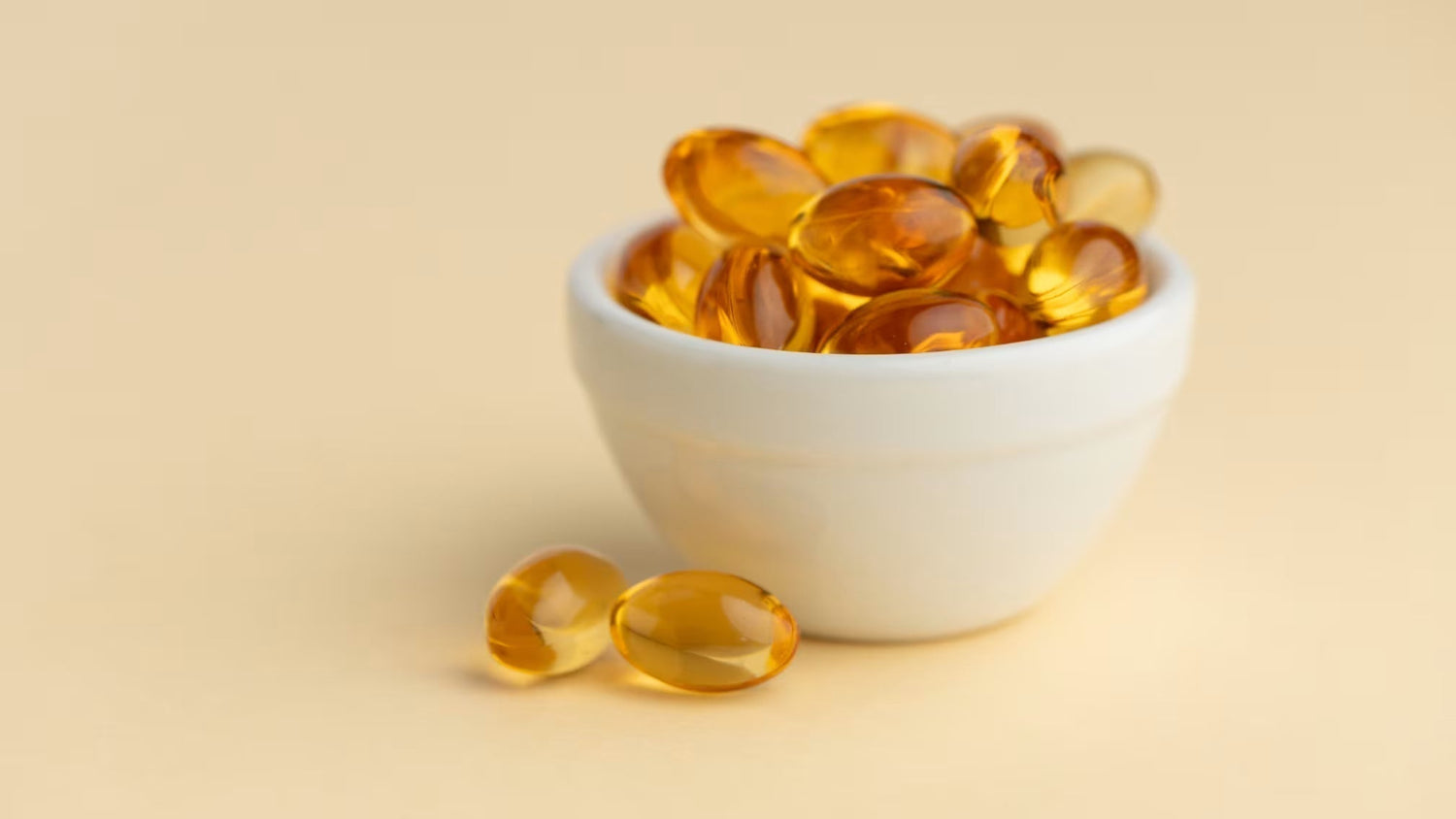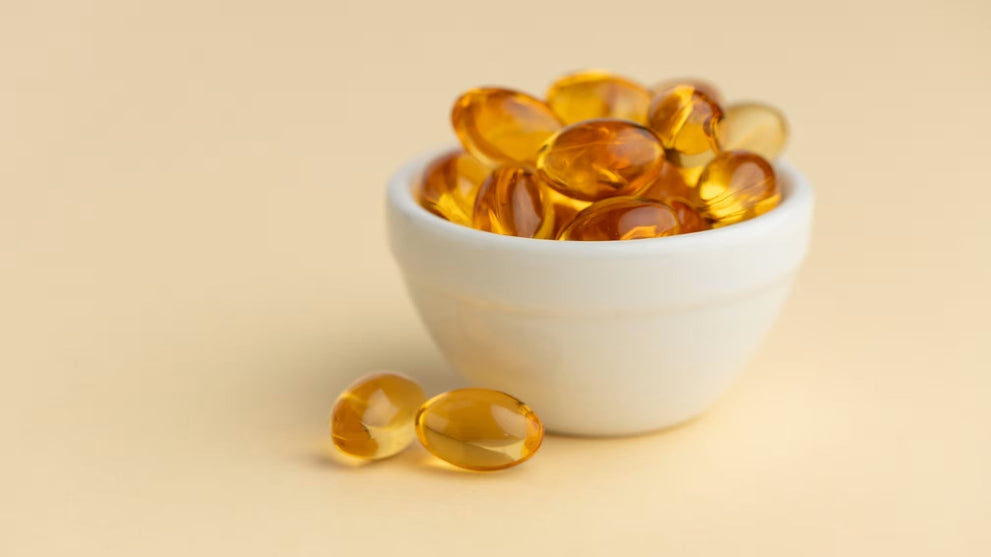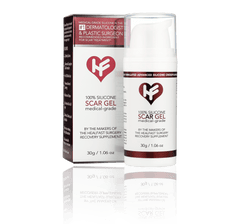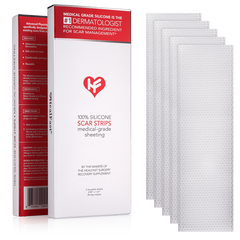

Vitamin E for Scars: Helpful or Harmful?

Scars are a natural part of the healing process, but for many people, they bring cosmetic concerns, discomfort, or self-consciousness. From acne scars and stretch marks to surgical scars, people are often on the lookout for effective remedies to fade them. One of the most popular remedies over the years has been using Vitamin E for scar healing, since many believe it helps reduce their visibility.
However, the question remains: Is Vitamin E truly beneficial for scars, or could it be harmful?
In this blog, we’ll break down what science says about Vitamin E, its role in skin healing, the potential benefits and risks, and whether it’s truly effective for scar treatment.
What Is Vitamin E?
Vitamin E is a fat-soluble nutrient and a powerful antioxidant naturally found in foods such as nuts, seeds, spinach, and vegetable oils. Within the body, it plays several important roles, including protecting cells from oxidative stress, supporting immune function, and helping to maintain a healthy skin barrier.
Because of its strong connection to skin health, many people assume that applying Vitamin E directly to scars can speed up healing or improve their appearance. You can find it in skincare products like oils and creams, as well as capsules that some choose to use topically.

Why Do People Use Vitamin E for Scar Healing?
The idea of applying Vitamin E to scars has been around for decades. Supporters believe it helps scar healing in the following ways:
-
Moisturizing dry scar tissue – Scarred skin often feels rough, tight, or itchy. Vitamin E oil is rich and nourishing, which can help keep the area hydrated and more comfortable.
-
Reducing oxidative stress – As a powerful antioxidant, Vitamin E may protect healing skin from free radical damage, which could otherwise slow down recovery.
-
Supporting collagen production – Collagen is the key protein that repairs wounds and shapes how a scar forms. Some clinical theories propose that Vitamin E influences collagen boosting (1).
- Fading dark marks – Many people use Vitamin E in hopes of lightening the pigmentation that lingers after acne, cuts, or surgical wounds heal.
Check out: Vitamins to Avoid After Surgery and Why They Matter for Recovery
Risk of Using Vitamin E for Scars
One of the biggest issues with Vitamin E is that it can cause allergic reactions or contact dermatitis in some people. This leads to redness, itching, or worsening of the scar area, making it counterproductive.
Commonly Asked Question: Is Vitamin E good for surgical scars?
Surgical scars require gentle and effective care, but Vitamin E isn’t always the best solution. While moisturizing the skin is important, studies show that Vitamin E offers little proven benefit for surgical scars and may even cause irritation in some cases.
Instead, silicone gels or sheets are widely recommended by surgeons because they have strong clinical evidence for improving scar appearance and supporting healthy healing. Let’s explore these and other evidence-based methods for surgical scar care.
Complete guide on: Role of Vitamin D in Scar Healing
Alternative Evidence-Based Treatments for Surgical Scars
If your goal is to minimize the visibility of surgical scars, several safe and clinically backed options are far more effective than Vitamin E. These treatments focus on hydrating the scar, regulating collagen production, and protecting the skin as it heals.
1. Silicone Gel or Sheets
Silicone-based products are widely regarded as the gold standard in scar management (2). They form a thin, protective layer over the scar that helps retain moisture, balance collagen production, and reduce redness and thickness. Options such as soft silicone scar tapes, gels, and sheets can be used on both new and old scars, making them especially effective for surgical scar care.
2. Sunscreen
Direct sunlight often intensifies scar discoloration, making them look more noticeable. Using a broad-spectrum SPF daily protects the healing skin from UV damage and ensures scars fade more evenly over time. Consistent sun protection is essential for long-term scar care.
3. Hydration and Moisturizers
Keeping scar tissue well-hydrated helps reduce tightness, dryness, and itching, which are common after surgery. Non-irritating moisturizers are usually a better choice, especially for people with sensitive skin. Proper hydration also supports the skin’s natural healing process.
4. Professional Treatments
For more stubborn or raised scars, professional procedures may be necessary. Options include laser therapy, microneedling, chemical peels, or corticosteroid injections, all of which can improve scar texture, reduce discoloration, and smooth out raised areas. These should always be done under the supervision of a qualified dermatologist or surgeon.
5. Scar-Friendly Nutrition
Caring for your body from the inside is just as vital as the treatments applied on the outside. Nutrients such as Vitamin C, Zinc, and Collagen peptides play a key role in wound healing, collagen remodeling, and overall skin recovery (3). Supporting your body with the right nutrition can enhance the effectiveness of topical scar treatments.
At HealFast, we understand the importance of the right nutrients for surgery recovery. Our post-surgery supplements are carefully physician-formulated with optimal levels of Vitamin C, Zinc, and other healing ingredients to support the body’s natural repair process from within and promote smoother scar recovery.
Don’t miss this article: Topical vs. Oral Vitamins for Wound Healing After Surgery
When (and When Not) to Use Vitamin E for Scars
Whether Vitamin E is suitable for scar care depends on your specific situation:
1. New surgical scars – Avoid Vitamin E unless your surgeon recommends it.
2. Acne scars or older scars – Vitamin E is unlikely to make a noticeable difference. Other treatments, such as professional procedures, may be more effective.
3. Sensitive skin – Use with caution. Always patch-test Vitamin E first, as it can cause irritation or allergic reactions in some people.
4. For basic hydration – If your main goal is moisturizing, a fragrance-free cream or natural options like aloe vera are gentler and just as effective.
Get in touch with us for more information!
References:
1. Wang, Z., Xu, R., Yang, H., Li, R., Ding, J., Chang, Y., & Zuo, R. (2024). Vitamin E regulates the collagen contents in the body wall of sea cucumber (Apostichopus japonicus) via its antioxidant effects and the TGF-β/Smads pathway. Antioxidants, 13(7), 847. https://doi.org/10.3390/antiox13070847
2. Lee, S.-J., Kim, B.-J., Kim, M.-N., & You, H.-J. (2014). Comparison of efficacy and convenience between silicone gel and silicone gel sheet in the prevention of hypertrophic scar and keloid after surgical excision: a randomized controlled trial. Journal of Korean Medical Science, 29(S3), S249–S253. https://doi.org/10.3346/jkms.2014.29.S3.S249
3. Seth, I., Lim, B., Cevik, J., Gracias, D., Chua, M., Kenney, P. S., Rozen, W. M., & Cuomo, R. (2024). Impact of nutrition on skin wound healing and aesthetic outcomes: A comprehensive narrative review. JPRAS Open, 39, 291–302. https://doi.org/10.1016/j.jpra.2024.01.006

- One of the most followed doctors online with 3.5+ million followers and 1 billion+ views in 2024 (Instagram, YouTube, TikTok, and Facebook)
- Board Certified Anesthesiologist and Clinical Assistant Professor who frequently teaches medical students, residents, and other physicians in medical school and hospital settings.
- Speaker and medical researcher having published 1 book, 3 book chapters, and over 57 scientific articles. Made over 100 presentations at national and international medical conferences on topics ranging from healthcare innovation, to nutrition, to patient safety.
- Serial entrepreneur having launched several healthcare companies with a track record of innovation within healthcare systems

Myro Figura, M.D.
- One of the most followed doctors online with 3.5+ million followers and 1 billion+ views in 2024 (Instagram, YouTube, TikTok, and Facebook)
- Board Certified Anesthesiologist and Clinical Assistant Professor who frequently teaches medical students, residents, and other physicians in medical school and hospital settings.
- Speaker and medical researcher having published 1 book, 3 book chapters, and over 57 scientific articles. Made over 100 presentations at national and international medical conferences on topics ranging from healthcare innovation, to nutrition, to patient safety.
- Serial entrepreneur having launched several healthcare companies with a track record of innovation within healthcare systems
Medical-grade Silicone Scar Gel "Semi-Solid Sheeting"
MEDICAL GRADE SILICONE SCAR GEL | From the Makers of the Industry-leading HealFast Surgery Recovery...
$23.99
Shop Now













